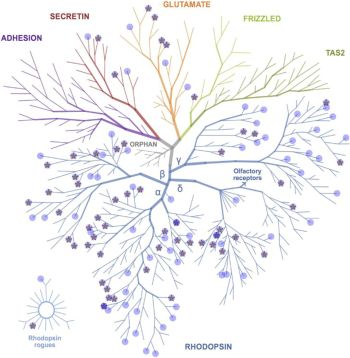01 Aug 2024 - Crosstalk between GPCR signaling and autophagy pathways elucidated
An international team around IBC2 and BMLS group leader Alexandra Stolz just published a study in Journal of Molecular Biology that sheds light on signaling routes that activate individual autophagy pathways. Utilizing a well-characterized chemical library, they systematically screened connections between G-protein-coupled receptors (GPCRs) and autophagy, a crucial cellular process involved in maintaining cell health and responding to stress. Autophagy helps degrade and recycle cellular components, and its dysfunction is linked to various diseases, including cancer, cardiomyopathy and metabolic disorders.
Besides the Stolz group, scientists from the group of Christian Münch and from the Karolinska Institute contributed to this collaborative effort. Among the tested compounds, several, including TC-G 1004, BAY 60-6583, and JTC-801, were found to affect general autophagy flux. Notably, JTC-801 stood out for its marked ability to enhance ER-phagy flux, a specialized form of autophagy targeting the endoplasmic reticulum. The study employed advanced mass spectrometry to analyze the global effects of these compounds, revealing how targeting specific GPCRs differentially impacts autophagy-associated proteins.
This study highlights a significant crosstalk between GPCR signaling and autophagy pathways, suggesting that GPCR-targeting drugs could potentially modulate autophagy in disease contexts. These findings open exciting new avenues for developing therapies aimed at diseases where autophagy regulation is disrupted, providing a promising step forward in understanding cellular homeostasis and stress response mechanisms. At the same time, it proves the value of chemical screening as platform technology for accelerating mechanistic research.
